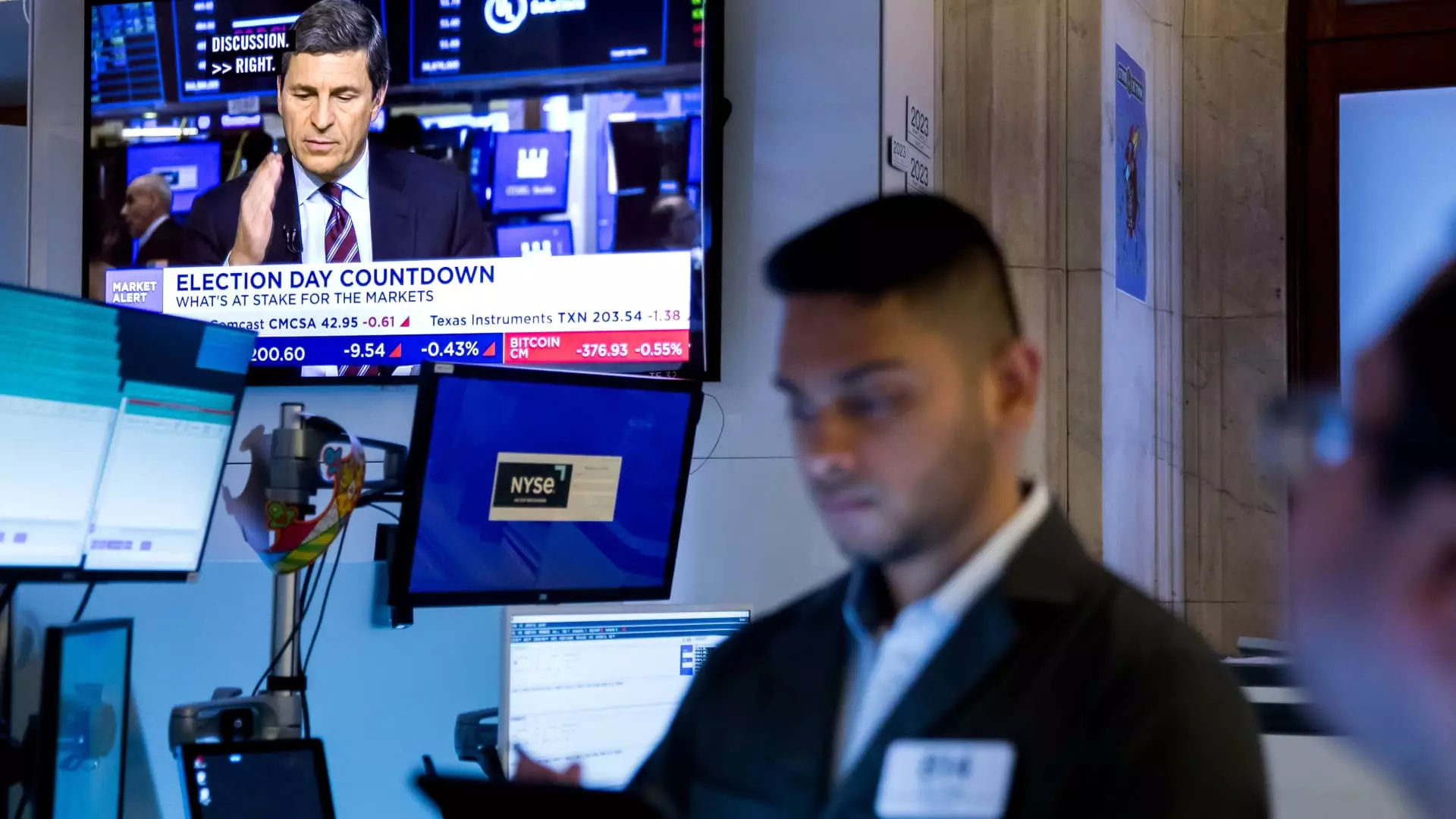The landscape of financial markets appears increasingly dynamic as the shadows of political events loom, notably with the imminent elections and ongoing discussions around international investments. In this analysis, we will explore the movements in stock markets, particularly influenced by investor sentiment regarding China’s economic policies and the cannabis industry, while also addressing various sectors responding to environmental challenges.
As we approach critical elections in the United States, the backdrop of China’s economic environment is creating a complex narrative that is influencing investor decisions. Notably, renowned investor David Tepper, head of Appaloosa Management, recently advocated for increased investments in Chinese assets. His endorsement appears to have momentarily buoyed several China-focused Exchange Traded Funds (ETFs); for instance, the KraneShares CSI China Internet ETF (KWEB) recorded an 11% increase following Tepper’s remarks. Despite this surge, a sobering reality is that these ETFs have considerably retraced since their peak in early October, with KWEB down 17% and other ETFs like the iShares China Large-Cap ETF (FXI) and iShares MSCI China ETF (MCHI) reflecting similar downward trends.
This phenomenon emphasizes the volatility inherent in international investing, particularly as traders balance immediate gains against the prevailing uncertainty in China’s economic policy decisions. The anticipated measures from Chinese leadership may not sufficiently stabilize the market in the face of broader geopolitical risks and investor apprehensions.
Meanwhile, the cannabis sector is capturing attention as voters in four states prepare to determine the future of cannabis legalization. Florida, Nebraska, North Dakota, and South Dakota are in the spotlight, and the potential outcomes could significantly affect investor sentiment towards cannabis-related stocks. Companies such as Canopy Growth and Aurora have seen positive momentum, with gains of 24% and nearly 9% respectively over the past month. Other ancillary businesses, like Scotts Miracle-Gro, are also benefiting from this perceived growth in the cannabis sector.
The recent uptick in performance is not only indicative of positive market sentiment but also highlights how state-level political shifts can rapidly influence consumer markets and subsequent investment strategies. A successful referendum could pave the way for a further upside as public acceptance of cannabis increases, suggesting that investors are positioning themselves ahead of possible reform.
Turning to environmental and resource management industries, recent trends indicate a spotlight on water resource companies amidst severe drought conditions in the New York area, marking the longest dry spell since 1869. Companies in this sector, like Energy Recovery and Global Water Resources, demonstrate resilience with respective annual increases of 9.6% and 16%. Their performances reflect how resource scarcity can reshape investor priorities, signaling a growing recognition of the necessity for sustainable practices in market strategies.
Utilities and water-focused ETFs are also showcasing upwards momentum, signifying that the current environmental crisis could reshape not only consumer behavior but also long-term investment trends in resource-dependent industries. This underscores the need for investors to consider the implications of environmental changes on market viability and the strategies companies must adopt to maintain relevance amidst evolving challenges.
However, the overall sentiment remains muted as volatility persists across various sectors. Fast-food giant Yum Brands, which operates key franchises like Pizza Hut and Taco Bell, illustrates a broader malaise, having fallen 1.8% over recent months. Similarly, the tech sector faces scrutiny, especially after Super Micro experienced a dramatic decline following troubling reports, demonstrating how specific incidents can engender widespread market reactions.
As investors brace for potential market shifts around the upcoming elections and unfolding international events, it is essential to adopt a comprehensive approach—balancing immediate opportunities against the potential for future instability. The interplay between political outcomes, legal changes, and environmental pressures promises to keep the financial markets in a state of flux. Investors should remain agile, informed, and proactive to navigate the complexities of today’s economic landscape.

